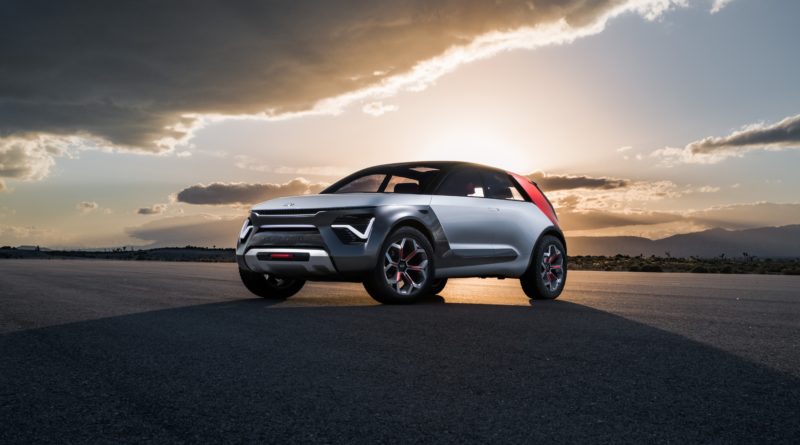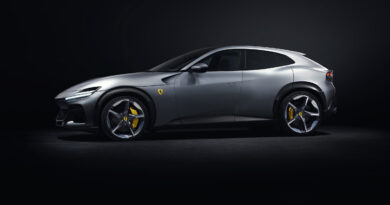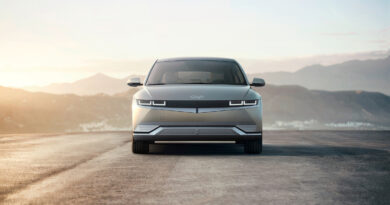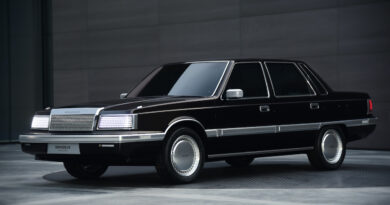Kia to ramp up EVs, but electric challenge is enormous
Kia is set to ramp up EVs and sales of electrified models with a raft of new arrivals from 2021 and beyond.
Kia says it underestimated the popularity of hybrid vehicles but plans to play a leading role in the shift to electric cars.
With a new logo and the promise of a family of electrified models arriving in Australia in 2021, Kia wants to get on the front foot with EVs.
“We’re planning for the future,” says Kia Australia COO Damien Meredith. “We’ve had our dealer network in the technical area working in training with EVs since the second half of 2019.
Kia’s first hybrid and electric vehicle is the Niro that goes on sale in the next few months.
But there’s plenty more coming.
Kia Australia’s product planning manager Roland Rivero confirmed to EVcentral that Australia would receive at least one of the seven planned dedicated electric vehicles that will introduce a new naming policy utilising EV1 to EV9.
Based on the E-GMP architecture developed for the Hyundai Group – of which Kia is part of – the new models will include SUVs, passenger cars and a sports car of sorts.
“We will be bringing in an E-GMP platform vehicle of some shape or form,” said Rivero. “Which one or how many is still something we’re studying closely with KMC [Kia Motors Corporation].”
Some of those new E-GMP-based EV models will have a performance focus.
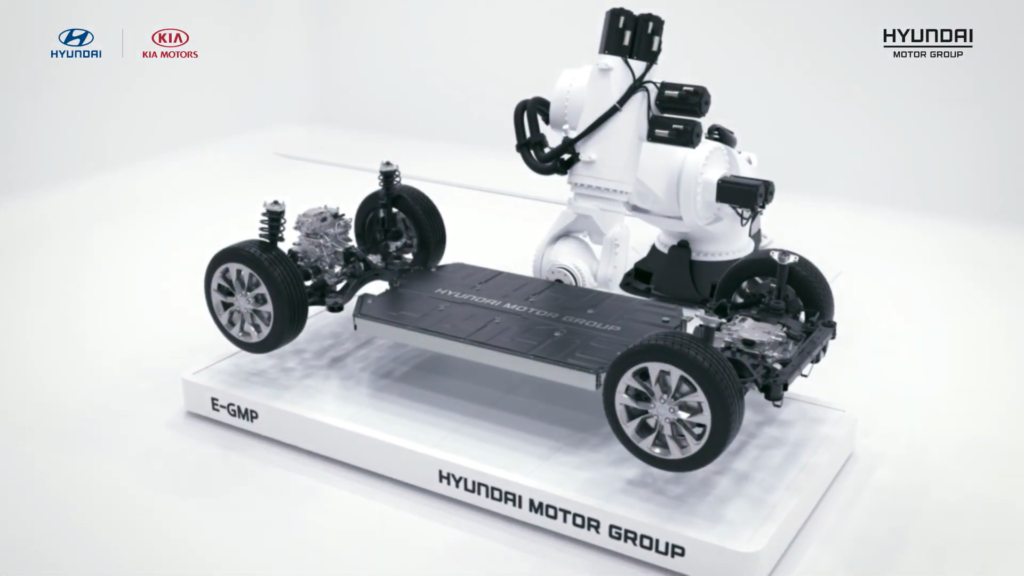
“We’re not simply going to add complexity to our range for very limited or niche volume.
“We do have our eyes on a couple of them. It’s a work in progress, watch this space.”
One likely option is an SUV, likely a mid-sizer to compete with the upcoming Hyundai Ioniq 5. That car is expected to be revealed early in 2021 to kick off the new Kia EV models.
As for timing, Rivero says an announcement is “not that far away”.
Kia: EV to break Toyota hybrid strength
Meredith says hybrids have been key to Toyota’s dominance in the 2020 sales race.
As most brands went backwards on sales, Toyota held station and increased its market share to 22.3 percent. That’s only just shy of the 23.6 percent market share record it hit in Australia in 2008.
However, there is a chasm between top-ranked Toyota and second-placed Mazda, with just 9.3 percent share. Toyota’s 2020 sales almost outdid second, third and fourth (Mazda, Hyundai and Ford) combined.
“It wouldn’t surprise me if Toyota end up with nearly a third of the market in a short period of time,” says Meredith.
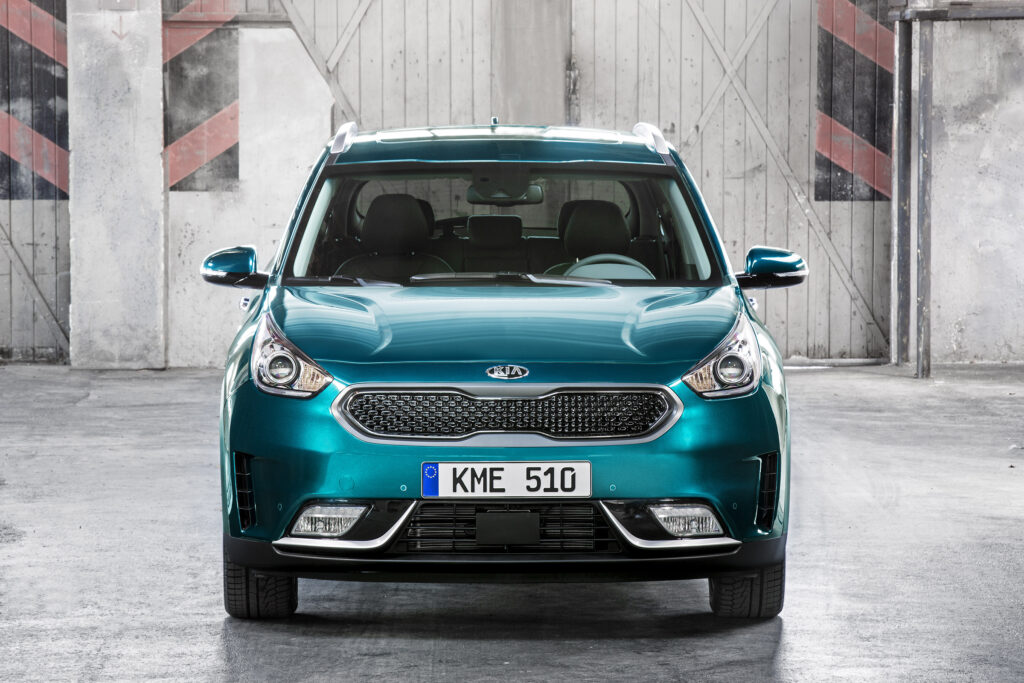
And it’s hybrids that are key to the brand’s current success, says Meredith, something Kia plans to make a dent on with its upcoming Niro.
“They’ve got a huge advantage in brand, they’ve got a huge advantage in hybrid. I think other manufacturers – us included – underestimated the strength of what hybrid could do. They’ve basically monopolised that part of the market.
“They’re in a very, very strong position.”
He believes Toyota in Australia is untouchable “in the medium term”.
EV challenge: ‘Brand EV’ and the Tesla factor
Tesla owns EVs – EVs as a brand – and it’ll be tough to crack that perception, says Meredith.
“There’s going to be a huge challenge, whether it’s Mercedes-Benz or BMW or Kia or Hyundai in regards to EVs,” he says.
“I think EVs might become the brand rather than the brand being a Kia EV or a Mercedes EV.”
He points to the marketing of Mercedes-Benz and BMW electric cars and how “they’re trying to get that connection”.
“To me Tesla means EVs. Mercedes-Benz doesn’t mean EVs.
“I think people might just buy EVs because they’re EVs, not because it’s a Mercedes EV or whatever.”
That could create an interesting market dynamic, one where the separation between mainstream and luxury is not as well defined as it traditionally has been.
Meredith suggests there’s an enormous challenge in cementing brands as EV players and ensuring buyers understand it’s not the same thing they’ve offered for decades.
“You want your brand to become stronger because of your involvement with EVs and the technology,” he says.
“It’s going to be an interesting – and challenging – bridge to cross.”
EVs surging, but diesel not dead … yet
The EV shift is gathering pace and 2021 is a critical year in the sheer number of electric cars consumers will have to choose from.
But Meredith says the diesel dominance in large SUVs, off-roaders and utes has a long way to run.
Toyota clearly believes the same; while it boasted of record hybrid sales in 2020, Toyota sold far more diesels in the same period.
He believes diesel will have a strong place in Australia for more than a decade.
“Light commercial and diesel will run a lot longer in Australia than it does in a lot of mature markets around the world,” he says.
That’s one reason Kia is not abandoning diesel just yet.
“We’ve hedged our bets,” says Rivero of the Sorento large SUV. “It’s the only car in Australia that’s got diesel, petrol, hybrid, plug-in hybrid . We’re giving all the options and choice for the customer. We’ll let the market tell us…”
Meredith admits it’s unlikely all those powertrain options will survive over coming years.
While he’s not going into details, it’s clear diesel is the one on the chopping block, something that gels with the broader strategy of parent company Hyundai.

